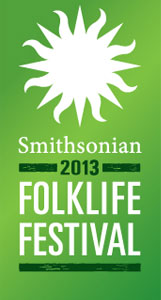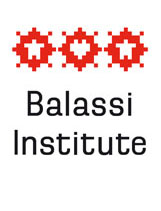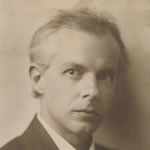 Béla Bartók (Nagyszentmiklós, 1881 – New York, 1945), one of the greatest composers of the 20th century, pianist, folk musicologist, collector of Central European folk music. Bartók’s art and scientific accomplishments were of formative significance not only to the history of Hungarian and European music, but to all of world culture. Bartók studied at the Academy of Music in Pest, where he was later employed as an instructor. His style was definitively influenced by German classicism and romanticism, with particular reference to the work of Brahms. With the support of Zoltán Kodály, he concerned himself extensively with the folk music of Hungary and its neighbouring countries. Influenced by his familiarity with this area of study, his compositional style often relied on elements taken from folk music. In 1940, fearing the spread of fascism, he fled to the United States, holding lectures at Harvard University on topics associated with Hungarian Music. Bartók’s famous sonata for solo violin was written for the great violinist Yehudi Menuhin. He died on September 26, 1945 in New York.
Béla Bartók (Nagyszentmiklós, 1881 – New York, 1945), one of the greatest composers of the 20th century, pianist, folk musicologist, collector of Central European folk music. Bartók’s art and scientific accomplishments were of formative significance not only to the history of Hungarian and European music, but to all of world culture. Bartók studied at the Academy of Music in Pest, where he was later employed as an instructor. His style was definitively influenced by German classicism and romanticism, with particular reference to the work of Brahms. With the support of Zoltán Kodály, he concerned himself extensively with the folk music of Hungary and its neighbouring countries. Influenced by his familiarity with this area of study, his compositional style often relied on elements taken from folk music. In 1940, fearing the spread of fascism, he fled to the United States, holding lectures at Harvard University on topics associated with Hungarian Music. Bartók’s famous sonata for solo violin was written for the great violinist Yehudi Menuhin. He died on September 26, 1945 in New York.
 Robert Capa (originally Endre Ernő Friedmann) (Budapest, 1913 – Indochina, Thai Binh, 1954), photographer. Capa was one of the greatest photographers of the 20th century, known primarily as a documentarian and war correspondent, who during his brief life worked in five different war zones (the Spanish Civil War, the Japanese invasion of China, the European theatre of World War II, the first Arab-Israeli conflict, and Indochina). During the Second World War, he documented events in London, North-Africa, and Italy, on Omaha Beach for the landing at Normandy, and in Paris at the time of its liberation.
Robert Capa (originally Endre Ernő Friedmann) (Budapest, 1913 – Indochina, Thai Binh, 1954), photographer. Capa was one of the greatest photographers of the 20th century, known primarily as a documentarian and war correspondent, who during his brief life worked in five different war zones (the Spanish Civil War, the Japanese invasion of China, the European theatre of World War II, the first Arab-Israeli conflict, and Indochina). During the Second World War, he documented events in London, North-Africa, and Italy, on Omaha Beach for the landing at Normandy, and in Paris at the time of its liberation.
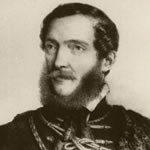
Lajos Kossuth (Monok, 1802 – Turin, 1894), statesman, finance minister, Regent-President of Hungary. Kossuth was one of the most prominent figures of the 19th-century struggle for the abolishment of feudal privileges and civil liberties, and the intellectual leader of the Hungarian war for independence. To the present day, Kossuth is one of those individuals who best embody the revolution of 1848-1849 in the memories of the Hungarian people. After the revolution, it was Kossuth who garnered the means to renew efforts on behalf of Hungary from several countries, including the United States in 1851. Thus, it is to his credit that the matter of Hungarian independence from the Austrian crown was not forgotten outside Hungary.
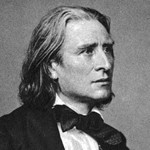 Ferenc Liszt (Doborján, 1811 – Bayreuth, Germany, 1886), one of the most versatile and influential personalities of 19th-century romantic music, an intellectual leader of his age, a greatest pianist of all time. Liszt was a performance artist, a virtuoso pianist, and writer, and a highly educated individual, who both enriched musical literature with the creation of a new form of music, and at the same time achieved much for his country. He studied in Vienna and Paris, where he came into contact with many of the prominent figures of Parisian intellectual life (Chopin, Berlioz, Paganini, Lamartine, Lamennais, Heine, George Sand, Delacroix). Later, he became a life-long friend of Richard Wagner. By the 1840s, he was already known throughout Europe as a pianist, celebrated on a scale unparalleled up to the present day. In 1875, Bartók was bestowed the office of President of the Budapest Academy of Music.
Ferenc Liszt (Doborján, 1811 – Bayreuth, Germany, 1886), one of the most versatile and influential personalities of 19th-century romantic music, an intellectual leader of his age, a greatest pianist of all time. Liszt was a performance artist, a virtuoso pianist, and writer, and a highly educated individual, who both enriched musical literature with the creation of a new form of music, and at the same time achieved much for his country. He studied in Vienna and Paris, where he came into contact with many of the prominent figures of Parisian intellectual life (Chopin, Berlioz, Paganini, Lamartine, Lamennais, Heine, George Sand, Delacroix). Later, he became a life-long friend of Richard Wagner. By the 1840s, he was already known throughout Europe as a pianist, celebrated on a scale unparalleled up to the present day. In 1875, Bartók was bestowed the office of President of the Budapest Academy of Music.
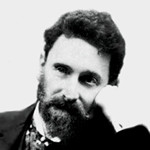 József Pulitzer, known world-wide as Joseph Pulitzer (Makó, 1847 – Charleston, South Carolina, USA, 1911), Hungarian-born American journalist, publisher. Pulitzer was the founder of the Pulitzer Prize, the highest-ranking prize in American journalism, but was also famous for his rivalry with newspaper magnate William Randolph Hearst, which led to the development of “yellow journalism”. Founded on tactics such as sensationalism and scandal-mongering, this journalistic style went on to have an impact on both American democracy, and the development of modern media, uncovering matters of corruption, political scandal, and economic abuse, and eventually leading to the passing of new legislation.
József Pulitzer, known world-wide as Joseph Pulitzer (Makó, 1847 – Charleston, South Carolina, USA, 1911), Hungarian-born American journalist, publisher. Pulitzer was the founder of the Pulitzer Prize, the highest-ranking prize in American journalism, but was also famous for his rivalry with newspaper magnate William Randolph Hearst, which led to the development of “yellow journalism”. Founded on tactics such as sensationalism and scandal-mongering, this journalistic style went on to have an impact on both American democracy, and the development of modern media, uncovering matters of corruption, political scandal, and economic abuse, and eventually leading to the passing of new legislation.
Read more about famous Hungarians


